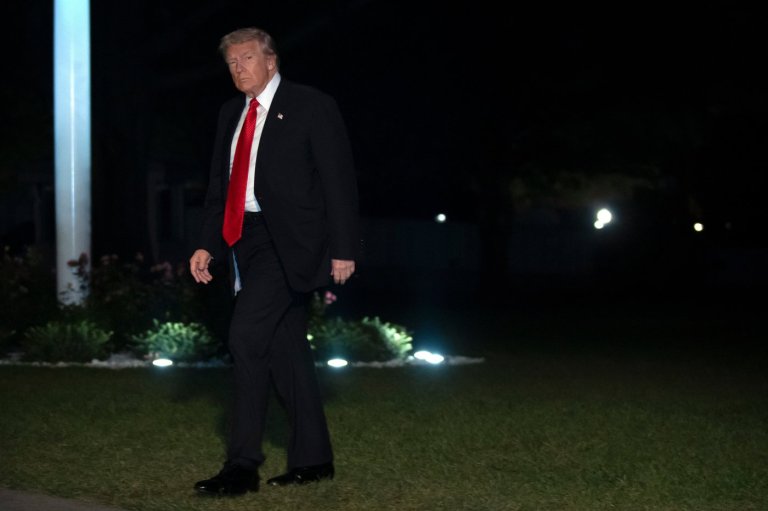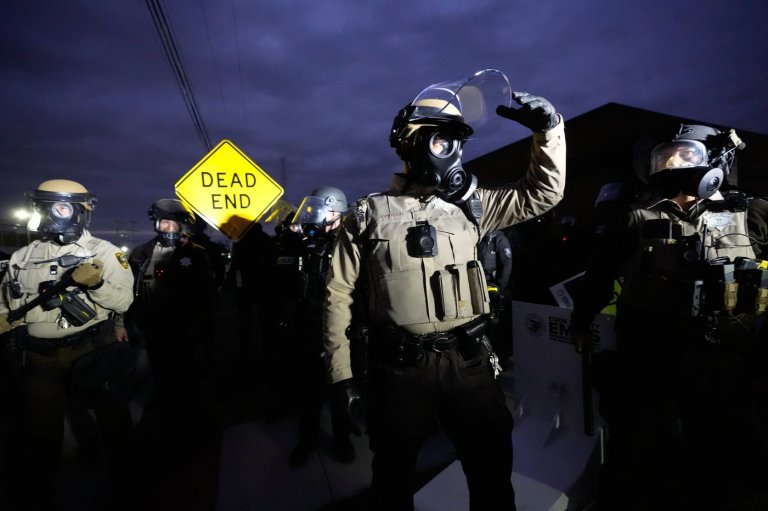Editorial Roundup: Pennsylvania
Lancaster Online/LNP. May 29, 2022.
Editorial: This year’s Pennsylvania gubernatorial election will be a clear litmus test of our willingness to protect democracy
Doug Mastriano could be our next governor.
As Bumsted reported, Mastriano benefited from a crowded field in winning the Republican nomination. He also “fought off an eleventh-hour move by the Republican establishment to get voters to rally around former U.S. Rep. Lou Barletta, the second-place finisher,” Bumsted noted. And “Mastriano did all that on a shoestring budget.”
He now has a chance to defeat Shapiro in the general election. So everyone should be aware of just who Mastriano is, and the implications of what his victory would be for the commonwealth and our democracy.
Mastriano is a conservative extremist who took busloads of Donald Trump supporters to the rally that preceded the Jan. 6, 2021, insurrection. He says he walked to the U.S. Capitol after the rally, but said he and his wife left when the violence started. According to The New Yorker magazine, however, “video footage, crowdsourced online, seems to establish his presence there after the rioting began and the Capitol was breached.”
He has been subpoenaed by the U.S. House Jan. 6 investigative committee.
He led the fiasco of a taxpayer-funded state Senate hearing on Nov. 25, 2020, in Gettysburg that allowed Trump and his lawyers to present their false claims about the presidential election being stolen, helping to launch the Big Lie.
He worked feverishly to overthrow the votes of nearly 3.5 million Pennsylvanians, including more than 115,000 Lancaster County residents, cast in the 2020 presidential election. And because that despicable effort failed, he has pushed hard for the unnecessary “audit” of the 2020 election.
As The New Yorker magazine noted earlier this month, “Mastriano continues to exhort his followers, whom he calls his ‘army,’ to overthrow democratically elected leaders. He has vowed, if elected, to throw out all current voter registrations and to appoint a like-minded secretary of state, who could reverse election results. … He has also threatened to dismantle the mechanics of voting in Pennsylvania. ‘With the stroke of a pen, I can decertify every single machine in the state,’ he has said.”
Does that sound like democracy to you?
It doesn’t to us.
Question of democracy
We’re not going to dwell today on Mastriano’s ridiculous and false claims that vaccines cause autism and COVID-19 is a “government sponsored virus.”
Or on his stated goal of making Pennsylvania a Second Amendment “sanctuary,” a mostly empty gesture supported by extremist opponents of federal gun regulation.
Or on Spotlight PA’s reporting on Mastriano’s embrace of Christian nationalism and his self-aggrandizing conviction that God told him to run for governor.
We’re not taking a stand today on the election issues that usually divide voters: taxation, abortion, big government versus small government.
The November gubernatorial election is not a question of small government versus big government — this is a matter of democracy versus the erasure of democracy.
So we are writing today to urge against complacency.
No one should be complacent about Mastriano’s candidacy — Shapiro included. As Bumsted noted, Mastriano is the candidate Shapiro hoped to face. (Hillary Clinton wanted to face Trump and we know how that worked out.) Shapiro needs to make his case as the pro-democracy candidate who can deliver for a broad range of constituents.
For our part, we need to be prepared to vote in November for democracy. So register to vote if you haven’t already. Encourage friends and family members to register to vote, too.
And we implore you to buckle up and pay attention to what transpires in the months to come.
The November gubernatorial contest will be the clearest litmus test Pennsylvanians have faced so far on how willing we are to protect democracy. In this birthplace of democracy, we shouldn’t be on different sides on the question of whether democracy survives.
‘Will we do our duty?’
This weekend, we celebrate Memorial Day and honor the sacrifice of those who literally gave their lives to protect democracy. What sacrifices are we willing to make?
Republican U.S. Rep. Liz Cheney of Wyoming offers some guidance.
In accepting a John F. Kennedy Profile in Courage Award last Sunday, Cheney said, “The question for every one of us is in this time of testing, will we do our duty? Will we defend our Constitution? Will we stand for truth? Will we put duty to our oath above partisan politics? Or will we look away from danger, ignore the threat, embrace the lies, and enable the liar?”
Mastriano wholeheartedly embraced the liar and the Big Lie that the 2020 election was stolen from Trump.
And, as Bumsted reported, he continues to rail against those who see him as extreme.
Those who “stand on the Constitution” are not “far right” and “extreme,” Mastriano said. “I repudiate that. That is crap and absolutely not true.”
Overturning the results of an election found to be legitimate by numerous Republican-appointed judges and even Trump’s own attorney general is not standing on the Constitution — it’s trampling it.
As Cheney put it, this is a “time of testing.” Will we pass the test?
On another matter
Kudos to the Lancaster County commissioners for agreeing to renew their efforts to hire lifeguards for the Lancaster County Central Park Pool, instead of just closing that much-needed place of recreation this summer, as they previously planned.
And on behalf of the many families who enjoy that pool on hot summer days, we thank the School District of Lancaster board members and other community members who attended the commissioners’ work session last week to make their case for the pool, which has been a valuable community resource since it was built for everyone, regardless of race, in 1967.
As Franklin & Marshall College professor Alison Kibler told the commissioners, “Other counties that built pools to address segregation didn’t build beautiful pools and they didn’t continue to invest in them” as Lancaster County did.
Said Kibler: “I would say you need to think about this moment in a historical way and I would say, don’t let up on this.”
We could not agree more.
___
Philadelphia Daily News/Inquirer. May 31, 2022.
Editorial: ‘Gas tax refund’ giveaway presents big, inequitable hit to state budget
A rebate proposal by the Democratic candidate for governor leaves too many families behind.
The day after Memorial Day — when many drivers have just spent a portion of their paychecks on gas for holiday weekend getaways — might be an inopportune time to weigh in against an idea that would take some of the sting out of paying at the pump. But when a policy proposal is this concerning, it must be done.
Josh Shapiro, the Democratic candidate for governor, has put forth a plan to offer what he calls “a gas tax refund” of $250 per car (up to a max of four cars) to each family in the commonwealth.
The spirit behind Shapiro’s proposal — showing solidarity with Pennsylvanians who are struggling to cope with higher prices — is laudable. But his plan misses too many needy families, while also sending a disproportionate amount of money to the state’s top income earners.
According to census data, more than half a million Pennsylvania households are without cars. While gas prices might not be taking the same bite out of their budgets, those households still face rising costs in rent, energy, and food, just like the state’s motorists. Car-free households also typically have fewer financial resources to begin with: The average income of car-free households in Pennsylvania is just over $20,000 a year, less than a third of the state’s median income.
Unlike the half a million families who will get nothing from Shapiro’s plan, the 300,000 families who report having four or more vehicles will get $1,000. While car-free households hover near the poverty line, the median income of households with at least four cars is $120,000.
Beyond the unequal distribution of money, it represents a significant expense for the state. There are more than eight million registered vehicles in Pennsylvania, which translates into a top cost of $2 billion. That total could represent more than 5% of the total budget expenditure for Shapiro’s first year in office, if he is elected in November. While the state does have a budget surplus, it also has significant needs. Philadelphia has toxic schools and record gun violence. Rural Pennsylvania schools also have significant financial difficulties. Every dollar spent on this political gimmick would be a dollar not spent on other important priorities.
Shapiro’s plan is better than Republican proposals to cut or suspend the gas tax, a move that detractors fear would simply transfer money from state coffers to the bank accounts of oil companies. But many of the same criticisms that have been leveled against a gas tax suspension also apply to Shapiro’s rebate plan. For example, Shapiro has yet to identify a source to make up for the lost revenue.
It is unlikely that Shapiro will change his mind on a proposal that he’s made such a major part of his campaign, but it is essential that he at least consider ways to temper the damage. Limiting the proposal to two cars, for example, could save hundreds of millions of dollars.
Also needed is a fairer benefit for zero-car households. In other states, relief proposals have included benefits to transit riders. In California, for example, Gov. Gavin Newsom is providing those who use public transportation with $750 million in subsidized fares.
According to the Philadelphia Transit Riders Union, providing subsidized transit to low-income riders statewide would cost just $90 million.
Given the stakes of this election, it is not surprising that Shapiro would reach for any advantage to ensure a win in November. Still, taking the opportunity to make this proposal fairer and include more Pennsylvanians is the right thing to do.
___
Pittsburgh Tribune-Review. May 29, 2022.
Editorial: Why can marijuana card companies advertise but doctors can’t?
When it comes to making health decisions, there are a lot of people bucking for seats at the table.
The federal government wants its say. The state government definitely jumps up and down and waves its hands. There are the insurance companies. There are the pharmaceutical companies. Sometimes churches want to be involved. Politics gets a piece of the pie in almost everything. Even corporations and organizations that wouldn’t seem related tend to rally for their part.
Sometimes it seems like the two parties that should be most important — the patient and doctor — become nothing more than incidental, interchangeable parts in a process being decided by everyone else.
It’s the kind of thing that people seeking alternative therapies might be looking to avoid. Maybe that pushes some people to seek medical marijuana in an effort to cut out insurance companies and other middlemen. But with the federal and state governments arguing about whether cannabis is legally acceptable therapy, good luck with that.
A Spotlight PA story shows that there is another hurdle for those patients: marketing.
Doctors who choose to approve patients for Pennsylvania’s legalized medical cannabis cannot advertise that practice. But marijuana card companies can.
Marijuana card companies are a kind of matchmaking service, but instead of getting someone a date, they connect a patient with a symptom treated by medical cannabis with a doctor open to prescribing that treatment.
The state Legislature didn’t let doctors advertise for fear of having doctors who were only in the business for the money. Lawmakers didn’t want a doctor’s office to become a marijuana card factory.
But by allowing marijuana card companies to do exactly what they feared doctors would do, they have the same result. Even worse, the process is a step removed from the code of ethics and myriad other regulated responsibilities of a licensed doctor.
The lawmakers’ fears were not misplaced. They were not wrong to attempt to keep the marijuana program as medical as possible rather than becoming an opportunity for the slickness of an ad campaign.
The problem is they did not prevent the advertising or the shiny, Big Pharma-style marketing machine. They simply put a detour between the patients and the doctors who wove through a maze of other business and marketing without guardrails.
If the legislators still believe in the limits they set on doctors, they should apply them to the other businesses. If they don’t still have those fears, they should take the handcuffs off the physicians.
___
Scranton Times-Tribune. May 31, 2022.
Editorial: Open primaries for fairness, governance
Pennsylvania’s May 17 primary election might have been the most unusual race in the commonwealth’s long and politically colorful history.
As election reform advocate David Thornburgh put it recently, the election was the “first one in the commonwealth’s 235-year history in which voters had the chance to vote for candidates in open gubernatorial and US Senate races, new state House and Senate districts, and new congressional districts.”
Unfortunately, the election was unusual in another way. Pennsylvania remains among only nine states that do not allow all registered voters to vote in primary elections. State law restricts primary voting only to registered members of parties with candidates seeking party nomination. As a practical matter, that means only Republicans and Democrats vote for candidates in Pennsylvania primaries, although all registered voters may cast ballots on referendums.
That’s a particular problem in Pennsylvania because unaligned voters are the fastest growing bloc of registered voters. On May 17, nearly 1.4 million independent voters were not allowed to vote, as just more than a third of Democrats and Republicans did so.
In 41 other states and the District of Columbia, all voters can cast ballots in primary elections. Through a variety of systems, independents can choose a party on primary election date.
Besides the inherent lack of fairness in requiring taxpayers to pay for elections and then prohibiting them from voting if they are registered independents, the bad election process is fundamental to bad governance.
This year’s as-yet unsettled race among out-of-state multimillionaires for the Republican nomination to a U.S. Senate seat makes the case. Mehmet Oz and David McCormick spent scores of millions of dollars appealing to a narrow, hard-right base. Their relentlessly negative advertising focused on each adversary’s supposed evil tendencies and hot-button social issues that have little to do with public policy.
Allowing independents to vote would require primary candidates to try to cast a wider net and actually address real problems, rather than setting up straw men to knock down in an effort to impress a narrow base.
For the sake of fairness and, more important, better governance, the Legislature should establish open primary elections.
___
Pittsburgh Post-Gazette. May 31, 2022.
Editorial: Congress isn’t acting on data privacy, so Pennsylvania should
While Congress continues to dither about reigning in tech companies’ profiteering on users’ data, states must pass a consumer data privacy law. Some states already have. Pennsylvania has not. As Microsoft’s own senior director of public policy, Ryan Harkins, testified at a state House Consumer Affairs Committee hearing last Wednesday, the industry can’t be trusted to regulate itself.
Companies scoop up your data — your basic data like phone numbers, your web, streaming and shopping histories, even your voice and your keystrokes. They do this not only to sell you products you didn’t know you wanted, but to change your behavior.
Harvard Business School professor Shoshana Zuboff explains. Driven by competition, companies like Google and Microsoft and thousands of lesser known ones, create ever more effective behavioral-prediction products.
“Ultimately,” she says, “they’ve discovered that this requires not only amassing huge volumes of data, but actually intervening in our behavior. The shift is from monitoring to what the data scientists call ‘actuating.’” These companies “develop ‘economies of action,’ as they learn to tune, herd, and condition our behavior with subtle and subliminal cues, rewards, and punishments that shunt us toward their most profitable outcomes.”
Americans have been taught for generations to fear the creation of an omnipotent surveillance state. We have not been nearly as primed to fear private surveillance. Now, experience is teaching what American culture had not: Corporate surveillance of every moment of everyday life, using the powerful tools of the digital age, is at least as threatening to liberty and privacy as anything a government bureaucracy could cook up.
Everything about who you are is for sale to the highest bidder to do what they want with. Mostly it’s about selling products and suggesting media, but there’s no telling what other uses this data — including, we reiterate, sounds and keystrokes from private conversations — could be utilized for. Besides malicious and illegal activities, like identity theft and fraud, what about malicious and legal activities, like influencing credit scores and insurance premiums? Like using your health data to deny you insurance or otherwise control your life?
California led the way in 2020 with the California Consumer Privacy Act. Virginia, Colorado, Utah and Connecticut have followed suit. Pennsylvania legislators should study these laws and then quickly pass a version of their own. Every minute they fail to do so, “big data” gathers more data and gains more power over your lives.
END
Join the Conversation!
Want to share your thoughts, add context, or connect with others in your community?
You must be logged in to post a comment.

















